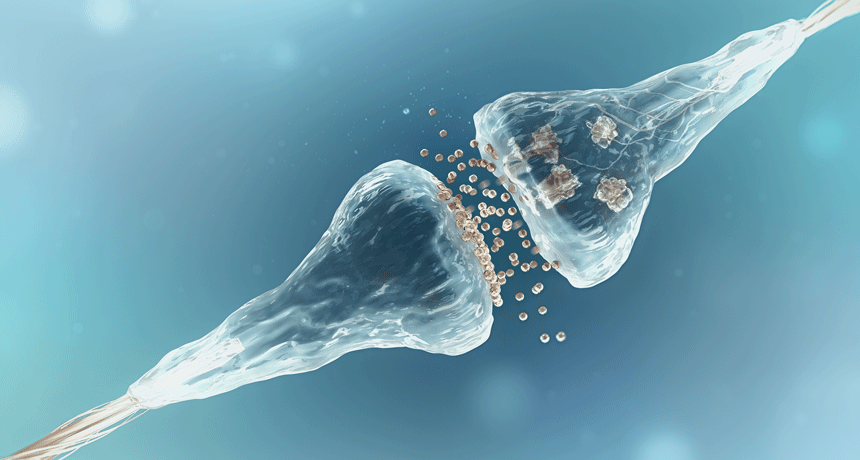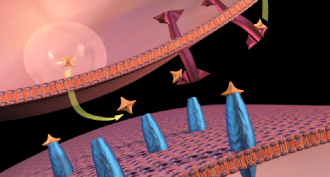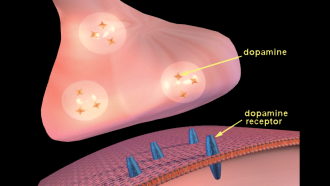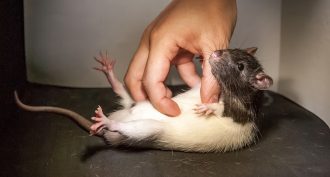MS-LS1-8
Gather and synthesize information that sensory receptors respond to stimuli by sending messages to the brain for immediate behavior or storage as memories.
-
 Brain
BrainScientists Say: Synapse
When brain cells need to pass messages, they do it without touching, across a space called a synapse.
-
 Health & Medicine
Health & MedicineSpeaking Mandarin may offer kids a musical edge
Scientists have linked a type of musical ability with the knowledge of Mandarin, the primary language of China.
By Dinsa Sachan -
 Science & Society
Science & SocietyHeartbeat can affect racial perception of threat
Links between nerves in the heart and the brain shed light on why some police may be more likely to shoot an unarmed person who’s black than one who is white.
-
 Animals
AnimalsHow birds know what not to tweet
How do birds perfect their pitches? The chemical dopamine spikes when they sing right, and dips when they drop a note, new data show.
-
 Brain
BrainExplainer: What is dopamine?
Dopamine is a chemical messenger that carries signals between brain cells. It also gets blamed for addiction. And a shortage of it gets blamed for symptoms of diseases such as Parkinson’s.
-
 Brain
BrainExplainer: What is neurotransmission?
When brain cells need to pass messages to one another, they use chemicals called neurotransmitters. This sharing of chemical secrets is known as neurotransmission.
-
 Health & Medicine
Health & MedicineScientists Say: Tinnitus
Ever had ringing in your ears? Tinnitus is a condition in which you hear a persistent sound that isn’t there.
-
 Environment
EnvironmentFood-like smell on plastic may lure seabirds to eat it
When plastic smells like supper, seabirds and other animals can be fooled into thinking it is food.
-
 Animals
AnimalsAnimals can do ‘almost math’
Humans aren’t the only animals with a number sense. Scientists are trying to figure out where and when it evolved.
By Susan Milius -
 Brain
BrainTo reveal how the brain creates joy, start by tickling rats
Rats love a good tickle. Not only do they beg for more, but the action itself activates a part of the brain that detects touch, researchers find.
-
 Psychology
PsychologyWhat makes a pretty face?
Beautiful faces are symmetrical and average. Do we prefer them because this makes them easier for our brains to process?
-
 Health & Medicine
Health & MedicineSimpler way to screen for hidden hearing loss?
Many teens today walk around with undiagnosed hearing damage. But some Boston-based researchers have come up with a low-tech approach to screening these individuals so they can get help.
By Lela Nargi